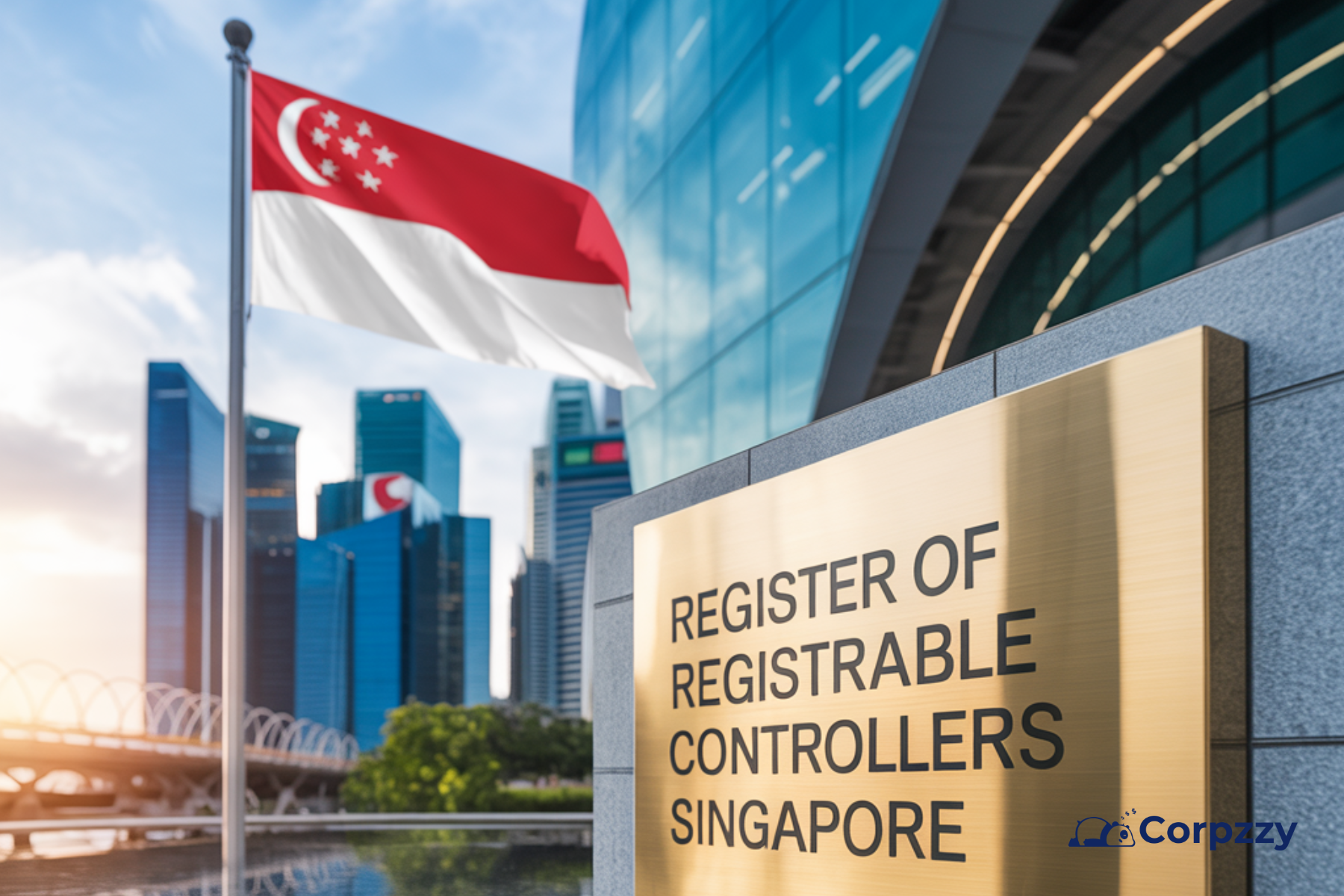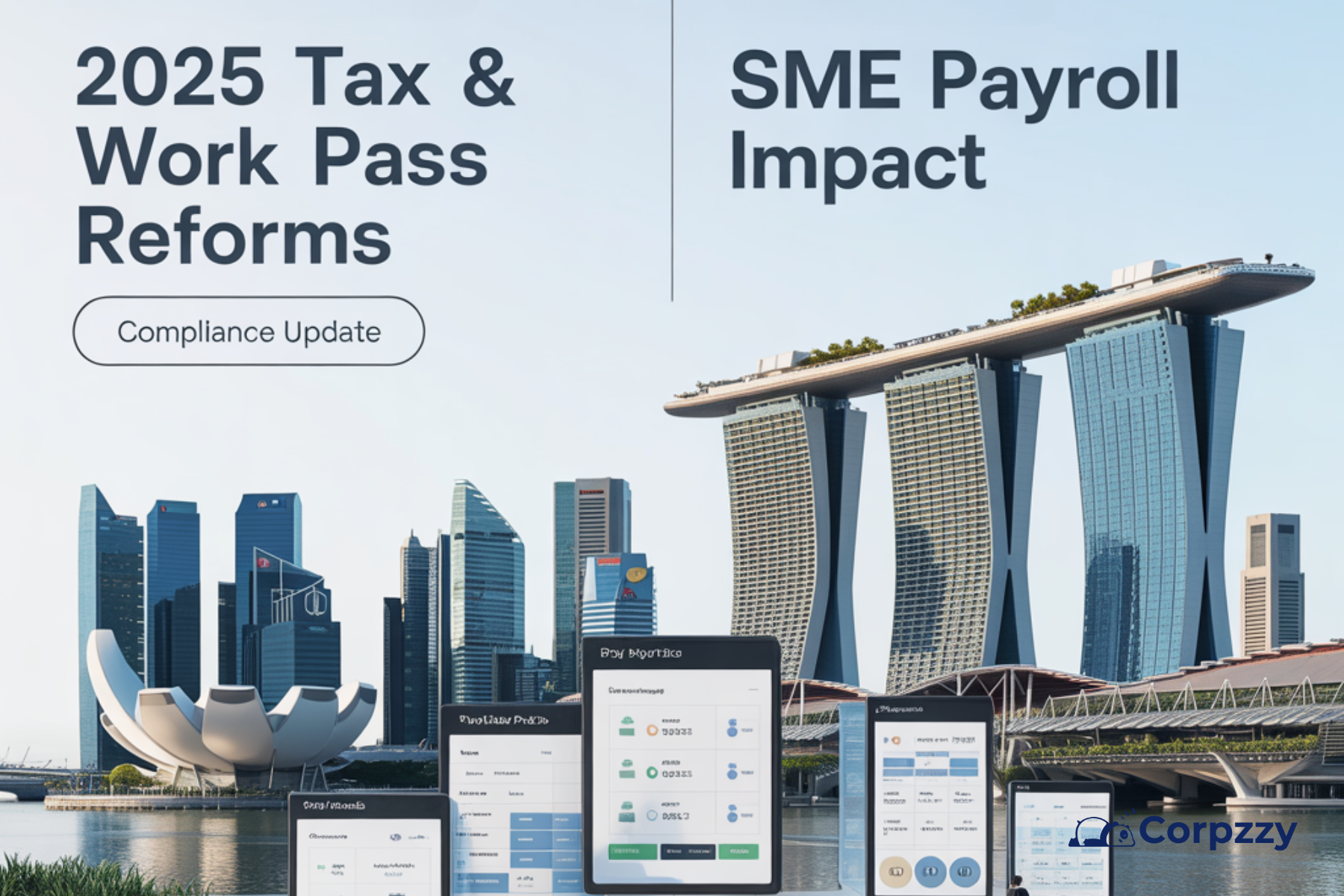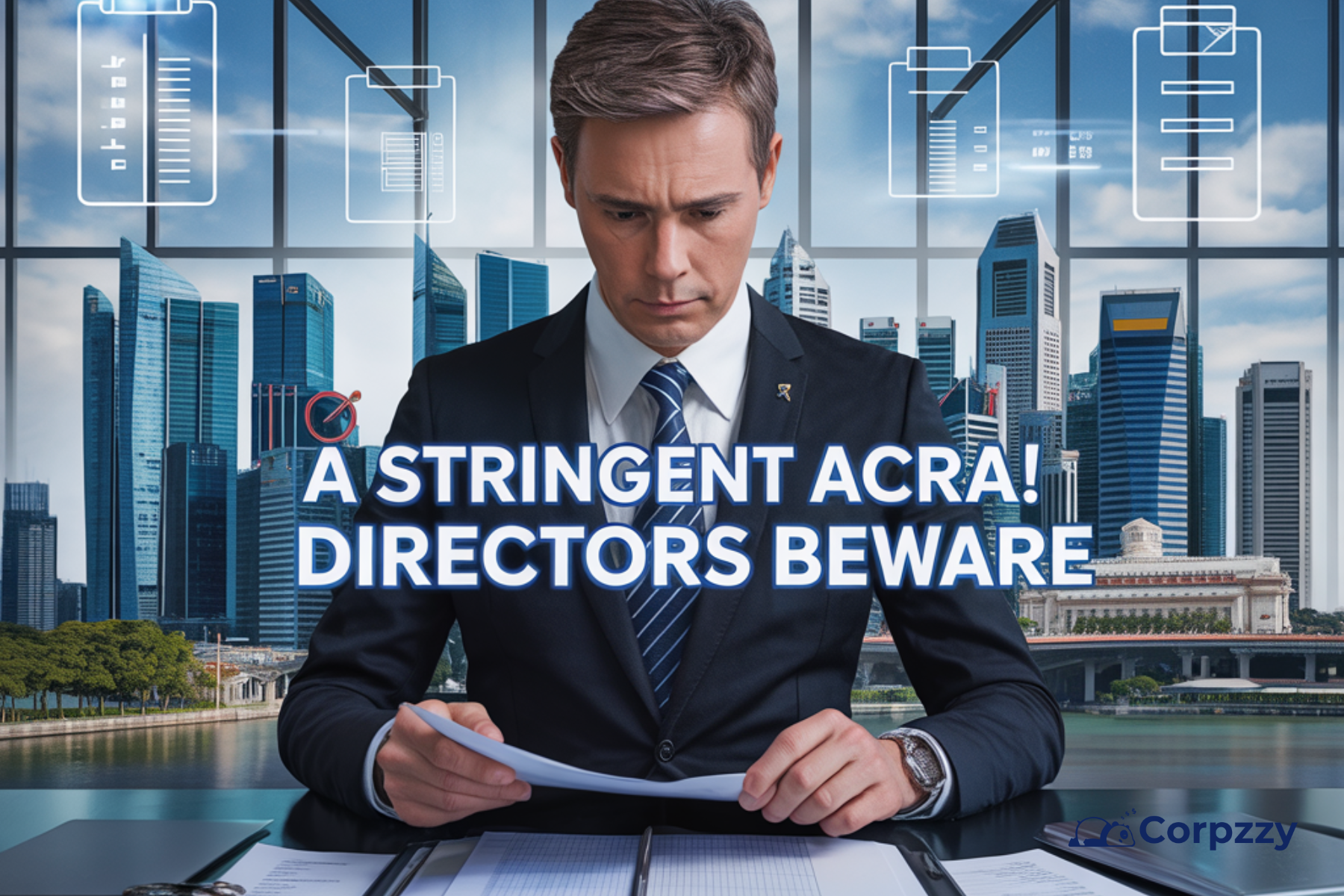The Register of Registrable Controllers (RORC) in Singapore: A Complete Guide
The Register of Registrable Controllers (RORC) in Singapore: A Complete Guide
Outline

Introduction to RORC in Singapore
Singapore is widely regarded as one of the most transparent and business-friendly jurisdictions in Asia. Part of this reputation comes from its strong emphasis on corporate governance and anti-money laundering regulations. One important compliance obligation for companies is maintaining a Register of Registrable Controllers (RORC).
The RORC was introduced in 2017 under the Companies (Amendment) Act and the Limited Liability Partnerships (Amendment) Act. It is a mandatory requirement for most companies and limited liability partnerships (LLPs) to maintain up-to-date information on individuals or entities with significant control. This initiative enhances corporate transparency and aligns Singapore with international standards set by the Financial Action Task Force (FATF).
For business owners, directors, and compliance officers, understanding RORC obligations is critical. Non-compliance can lead to severe penalties, reputational damage, and difficulties in future transactions such as fundraising or audits.
What Is the Register of Registrable Controllers (RORC)?
The RORC is essentially a document that records the details of individuals or entities that have significant control or ownership interest in a Singapore company or LLP. In practice, these are often referred to as “controllers” or “beneficial owners.”
This register is not meant for public access. Instead, it must be lodged with the Accounting and Corporate Regulatory Authority (ACRA) through BizFile+ and kept updated internally by the company. Government agencies such as the Monetary Authority of Singapore (MAS) and law enforcement officers may access it when necessary.
The central purpose of RORC is to identify who ultimately owns or controls a company, thereby preventing misuse of corporate structures for illicit activities such as tax evasion, money laundering, or terrorism financing.
Who Qualifies as a Registrable Controller?
A registrable controller can be:
- An individual who directly or indirectly holds more than 25% of the shares in the company.
- An individual who directly or indirectly holds more than 25% of the voting rights in the company.
- An individual who has the right to appoint or remove directors who hold a majority of voting rights.
- An individual who has the right to exercise significant influence or control over the company.
- A corporate entity (another company or LLP) that meets the above conditions.
In other words, a registrable controller is not necessarily the largest shareholder. Even without holding shares, a person may still qualify if they have contractual rights, voting powers, or other arrangements giving them significant control.
Which Entities Must Maintain a RORC?
The requirement applies broadly to:
- All private companies incorporated in Singapore.
- All foreign companies registered in Singapore.
- All limited liability partnerships (LLPs) registered in Singapore.
However, some entities are exempt. For example:
- Listed companies on the Singapore Exchange (SGX).
- Singapore financial institutions regulated by MAS.
- Wholly owned subsidiaries of exempt entities.
Even if exempt from maintaining their own register, some entities may still be required to lodge data with ACRA. Businesses should carefully check their status before assuming exemption.
What Information Must Be Recorded in the RORC?
Each registrable controller’s record must include accurate and up-to-date information. Typical details include:
- Full name of the controller.
- Residential address (for individuals) or registered office address (for entities).
- Nationality and identification number (e.g., NRIC, FIN, or passport for individuals).
- Date of becoming a controller.
- Date of ceasing to be a controller (if applicable).
- Nature and extent of control (e.g., shareholding percentage, voting rights, appointment rights).
This information must be verified, kept accurate, and updated whenever there are changes. Companies have a legal obligation to send notices to potential controllers or related entities to confirm information.
How to File the RORC with ACRA
Singapore companies must lodge their RORC information with ACRA via BizFile+. The process generally involves:
- Preparing the internal RORC register with all relevant details.
- Logging into BizFile+ using a CorpPass account.
- Filing the “Update Register of Registrable Controllers (RORC)” transaction.
- Paying any applicable filing fees (if imposed in the future).
- Ensuring that updates are filed within the prescribed deadlines whenever changes occur.
The responsibility for compliance lies with the company directors, secretaries, or partners of an LLP. Many businesses appoint a corporate service provider (CSP) or company secretary to handle this obligation.
Deadlines and Update Requirements
The initial filing of RORC must be completed within 30 days of incorporation or registration.
Subsequently, whenever there are changes to controllers—such as share transfers, restructuring, or amendments to voting agreements—the register must be updated within two business days internally and lodged with ACRA within 14 days.
Timely updates are essential, as even small delays can technically constitute a breach of the Companies Act.
Penalties for Non-Compliance
Singapore takes corporate compliance seriously. Failure to maintain or update a RORC may result in:
- A fine of up to S$5,000 per breach.
- Potential prosecution of directors, secretaries, or partners responsible.
- Difficulties in passing regulatory checks when opening bank accounts, applying for loans, or engaging in government contracts.
In repeated or serious cases, ACRA may escalate enforcement actions, leading to reputational harm that can affect business relationships and investor confidence.
Exemptions and Special Considerations
While listed companies and MAS-regulated financial institutions are exempt, businesses with complex ownership structures may face challenges. For instance, if a Singapore company is ultimately owned by a foreign parent, the local entity must still identify and disclose the ultimate beneficial owner.
Special rules also apply when controllers are trusts, nominee shareholders, or layered corporate structures. Companies must make reasonable efforts to “look through” these arrangements to identify the actual natural person in control.
Failure to do so may be treated as negligence. In such cases, companies should seek professional assistance to ensure accuracy.
Practical Challenges Companies Face
Although the legal framework is clear, compliance in practice can be complex. Common issues include:
- Difficulty in identifying foreign beneficial owners due to secrecy laws in other jurisdictions.
- Controllers being uncooperative in providing information.
- Misunderstanding whether minority shareholders with special rights qualify as controllers.
- Administrative burdens in regularly updating and filing information.
To address these challenges, many Singapore businesses engage a corporate secretarial service to handle RORC matters. This ensures accuracy, reduces risk, and avoids missing deadlines.
How RORC Strengthens Corporate Governance
The RORC framework enhances transparency by allowing regulators to see beyond nominee shareholders and front companies. It complements other Singapore initiatives such as the Register of Members (ROM), Know-Your-Customer (KYC) requirements, and anti-money laundering laws.
By enforcing beneficial ownership disclosure, Singapore protects its reputation as a trusted global financial hub. Businesses benefit indirectly because a transparent system reduces risks of fraud, shell companies, and illicit activity infiltrating legitimate corporate networks.
RORC and International Standards
Singapore’s RORC framework is aligned with recommendations by the Financial Action Task Force (FATF), a global body that sets anti-money laundering and counter-terrorism financing standards.
Many jurisdictions, including the UK, Hong Kong, and Australia, have implemented similar beneficial ownership registers. Singapore’s version is unique in that it strikes a balance between transparency and privacy—RORC information is not made public but is available to regulators.
This approach provides accountability without discouraging legitimate investors who value confidentiality.
Best Practices for Businesses
To ensure full compliance, companies should adopt the following practices:
- Early Setup: Prepare and maintain a RORC immediately upon incorporation.
- Regular Monitoring: Review ownership structures quarterly or during major transactions.
- Controller Engagement: Send notices to potential controllers promptly and follow up to confirm details.
- Professional Assistance: Use a qualified company secretary or CSP to manage filings.
- Internal Controls: Keep copies of notices, confirmations, and supporting documents for audit trails.
Adopting these practices not only prevents penalties but also demonstrates strong corporate governance to stakeholders.
RORC for Startups and SMEs
For startups and small-to-medium enterprises (SMEs), RORC compliance may feel like another administrative burden. However, it is also an opportunity to build credibility with investors and banks.
By maintaining a clear register, startups can more easily demonstrate their shareholder structure during fundraising. It also reduces delays when applying for government grants, opening bank accounts, or onboarding investors.
Engaging a low-cost corporate secretary can help SMEs manage RORC without stretching resources.
Role of Corporate Service Providers (CSPs)
Most Singapore companies outsource RORC management to CSPs. These professionals ensure that registers are updated, filings are made on BizFile+, and statutory records are maintained.
CSPs also help companies identify controllers correctly, especially in multi-layered corporate structures or when dealing with trusts and nominee arrangements. Their expertise reduces the risk of errors that could otherwise lead to fines.
For foreign entrepreneurs incorporating in Singapore, CSPs are particularly valuable, as they bridge knowledge gaps about local compliance.
Common Misconceptions About RORC
Despite being in place for years, misconceptions persist:
- “Public can access RORC” – False. Only regulators have access.
- “Only shareholders need to be recorded” – False. Non-shareholders with control rights also qualify.
- “Exempt companies need not lodge anything” – False. Some exempt entities must still lodge information with ACRA.
- “One-time filing is enough” – False. RORC must be updated continuously.
Understanding these nuances is essential to staying compliant.
Future of RORC in Singapore
As global standards evolve, Singapore may refine its RORC framework further. Possible developments include tighter deadlines, enhanced data-sharing with foreign regulators, or broader disclosure requirements.
Businesses should anticipate these changes and treat RORC compliance as part of a broader compliance culture, not just a one-time filing obligation.
Staying updated ensures that companies remain prepared for any regulatory tightening.
Conclusion
The Register of Registrable Controllers (RORC) is a cornerstone of Singapore’s corporate transparency framework. It requires companies and LLPs to maintain accurate records of beneficial owners and lodge them with ACRA.
While the process may seem burdensome, compliance is non-negotiable. Companies that stay proactive not only avoid penalties but also build stronger reputations with regulators, banks, and investors.
By understanding RORC requirements, keeping records updated, and seeking professional assistance when necessary, businesses in Singapore can ensure they remain compliant, credible, and ready for growth.
Frequently Asked Questions
Questions? We Have Answers
Related Business Articles
Share This Story, Choose Your Platform!


Introduction to RORC in Singapore
Singapore is widely regarded as one of the most transparent and business-friendly jurisdictions in Asia. Part of this reputation comes from its strong emphasis on corporate governance and anti-money laundering regulations. One important compliance obligation for companies is maintaining a Register of Registrable Controllers (RORC).
The RORC was introduced in 2017 under the Companies (Amendment) Act and the Limited Liability Partnerships (Amendment) Act. It is a mandatory requirement for most companies and limited liability partnerships (LLPs) to maintain up-to-date information on individuals or entities with significant control. This initiative enhances corporate transparency and aligns Singapore with international standards set by the Financial Action Task Force (FATF).
For business owners, directors, and compliance officers, understanding RORC obligations is critical. Non-compliance can lead to severe penalties, reputational damage, and difficulties in future transactions such as fundraising or audits.
What Is the Register of Registrable Controllers (RORC)?
The RORC is essentially a document that records the details of individuals or entities that have significant control or ownership interest in a Singapore company or LLP. In practice, these are often referred to as “controllers” or “beneficial owners.”
This register is not meant for public access. Instead, it must be lodged with the Accounting and Corporate Regulatory Authority (ACRA) through BizFile+ and kept updated internally by the company. Government agencies such as the Monetary Authority of Singapore (MAS) and law enforcement officers may access it when necessary.
The central purpose of RORC is to identify who ultimately owns or controls a company, thereby preventing misuse of corporate structures for illicit activities such as tax evasion, money laundering, or terrorism financing.
Who Qualifies as a Registrable Controller?
A registrable controller can be:
- An individual who directly or indirectly holds more than 25% of the shares in the company.
- An individual who directly or indirectly holds more than 25% of the voting rights in the company.
- An individual who has the right to appoint or remove directors who hold a majority of voting rights.
- An individual who has the right to exercise significant influence or control over the company.
- A corporate entity (another company or LLP) that meets the above conditions.
In other words, a registrable controller is not necessarily the largest shareholder. Even without holding shares, a person may still qualify if they have contractual rights, voting powers, or other arrangements giving them significant control.
Which Entities Must Maintain a RORC?
The requirement applies broadly to:
- All private companies incorporated in Singapore.
- All foreign companies registered in Singapore.
- All limited liability partnerships (LLPs) registered in Singapore.
However, some entities are exempt. For example:
- Listed companies on the Singapore Exchange (SGX).
- Singapore financial institutions regulated by MAS.
- Wholly owned subsidiaries of exempt entities.
Even if exempt from maintaining their own register, some entities may still be required to lodge data with ACRA. Businesses should carefully check their status before assuming exemption.
What Information Must Be Recorded in the RORC?
Each registrable controller’s record must include accurate and up-to-date information. Typical details include:
- Full name of the controller.
- Residential address (for individuals) or registered office address (for entities).
- Nationality and identification number (e.g., NRIC, FIN, or passport for individuals).
- Date of becoming a controller.
- Date of ceasing to be a controller (if applicable).
- Nature and extent of control (e.g., shareholding percentage, voting rights, appointment rights).
This information must be verified, kept accurate, and updated whenever there are changes. Companies have a legal obligation to send notices to potential controllers or related entities to confirm information.
How to File the RORC with ACRA
Singapore companies must lodge their RORC information with ACRA via BizFile+. The process generally involves:
- Preparing the internal RORC register with all relevant details.
- Logging into BizFile+ using a CorpPass account.
- Filing the “Update Register of Registrable Controllers (RORC)” transaction.
- Paying any applicable filing fees (if imposed in the future).
- Ensuring that updates are filed within the prescribed deadlines whenever changes occur.
The responsibility for compliance lies with the company directors, secretaries, or partners of an LLP. Many businesses appoint a corporate service provider (CSP) or company secretary to handle this obligation.
Deadlines and Update Requirements
The initial filing of RORC must be completed within 30 days of incorporation or registration.
Subsequently, whenever there are changes to controllers—such as share transfers, restructuring, or amendments to voting agreements—the register must be updated within two business days internally and lodged with ACRA within 14 days.
Timely updates are essential, as even small delays can technically constitute a breach of the Companies Act.
Penalties for Non-Compliance
Singapore takes corporate compliance seriously. Failure to maintain or update a RORC may result in:
- A fine of up to S$5,000 per breach.
- Potential prosecution of directors, secretaries, or partners responsible.
- Difficulties in passing regulatory checks when opening bank accounts, applying for loans, or engaging in government contracts.
In repeated or serious cases, ACRA may escalate enforcement actions, leading to reputational harm that can affect business relationships and investor confidence.
Exemptions and Special Considerations
While listed companies and MAS-regulated financial institutions are exempt, businesses with complex ownership structures may face challenges. For instance, if a Singapore company is ultimately owned by a foreign parent, the local entity must still identify and disclose the ultimate beneficial owner.
Special rules also apply when controllers are trusts, nominee shareholders, or layered corporate structures. Companies must make reasonable efforts to “look through” these arrangements to identify the actual natural person in control.
Failure to do so may be treated as negligence. In such cases, companies should seek professional assistance to ensure accuracy.
Practical Challenges Companies Face
Although the legal framework is clear, compliance in practice can be complex. Common issues include:
- Difficulty in identifying foreign beneficial owners due to secrecy laws in other jurisdictions.
- Controllers being uncooperative in providing information.
- Misunderstanding whether minority shareholders with special rights qualify as controllers.
- Administrative burdens in regularly updating and filing information.
To address these challenges, many Singapore businesses engage a corporate secretarial service to handle RORC matters. This ensures accuracy, reduces risk, and avoids missing deadlines.
How RORC Strengthens Corporate Governance
The RORC framework enhances transparency by allowing regulators to see beyond nominee shareholders and front companies. It complements other Singapore initiatives such as the Register of Members (ROM), Know-Your-Customer (KYC) requirements, and anti-money laundering laws.
By enforcing beneficial ownership disclosure, Singapore protects its reputation as a trusted global financial hub. Businesses benefit indirectly because a transparent system reduces risks of fraud, shell companies, and illicit activity infiltrating legitimate corporate networks.
RORC and International Standards
Singapore’s RORC framework is aligned with recommendations by the Financial Action Task Force (FATF), a global body that sets anti-money laundering and counter-terrorism financing standards.
Many jurisdictions, including the UK, Hong Kong, and Australia, have implemented similar beneficial ownership registers. Singapore’s version is unique in that it strikes a balance between transparency and privacy—RORC information is not made public but is available to regulators.
This approach provides accountability without discouraging legitimate investors who value confidentiality.
Best Practices for Businesses
To ensure full compliance, companies should adopt the following practices:
- Early Setup: Prepare and maintain a RORC immediately upon incorporation.
- Regular Monitoring: Review ownership structures quarterly or during major transactions.
- Controller Engagement: Send notices to potential controllers promptly and follow up to confirm details.
- Professional Assistance: Use a qualified company secretary or CSP to manage filings.
- Internal Controls: Keep copies of notices, confirmations, and supporting documents for audit trails.
Adopting these practices not only prevents penalties but also demonstrates strong corporate governance to stakeholders.
RORC for Startups and SMEs
For startups and small-to-medium enterprises (SMEs), RORC compliance may feel like another administrative burden. However, it is also an opportunity to build credibility with investors and banks.
By maintaining a clear register, startups can more easily demonstrate their shareholder structure during fundraising. It also reduces delays when applying for government grants, opening bank accounts, or onboarding investors.
Engaging a low-cost corporate secretary can help SMEs manage RORC without stretching resources.
Role of Corporate Service Providers (CSPs)
Most Singapore companies outsource RORC management to CSPs. These professionals ensure that registers are updated, filings are made on BizFile+, and statutory records are maintained.
CSPs also help companies identify controllers correctly, especially in multi-layered corporate structures or when dealing with trusts and nominee arrangements. Their expertise reduces the risk of errors that could otherwise lead to fines.
For foreign entrepreneurs incorporating in Singapore, CSPs are particularly valuable, as they bridge knowledge gaps about local compliance.
Common Misconceptions About RORC
Despite being in place for years, misconceptions persist:
- “Public can access RORC” – False. Only regulators have access.
- “Only shareholders need to be recorded” – False. Non-shareholders with control rights also qualify.
- “Exempt companies need not lodge anything” – False. Some exempt entities must still lodge information with ACRA.
- “One-time filing is enough” – False. RORC must be updated continuously.
Understanding these nuances is essential to staying compliant.
Future of RORC in Singapore
As global standards evolve, Singapore may refine its RORC framework further. Possible developments include tighter deadlines, enhanced data-sharing with foreign regulators, or broader disclosure requirements.
Businesses should anticipate these changes and treat RORC compliance as part of a broader compliance culture, not just a one-time filing obligation.
Staying updated ensures that companies remain prepared for any regulatory tightening.
Conclusion
The Register of Registrable Controllers (RORC) is a cornerstone of Singapore’s corporate transparency framework. It requires companies and LLPs to maintain accurate records of beneficial owners and lodge them with ACRA.
While the process may seem burdensome, compliance is non-negotiable. Companies that stay proactive not only avoid penalties but also build stronger reputations with regulators, banks, and investors.
By understanding RORC requirements, keeping records updated, and seeking professional assistance when necessary, businesses in Singapore can ensure they remain compliant, credible, and ready for growth.
Frequently Asked Questions
Questions? We Have Answers
Share This Story, Choose Your Platform!




